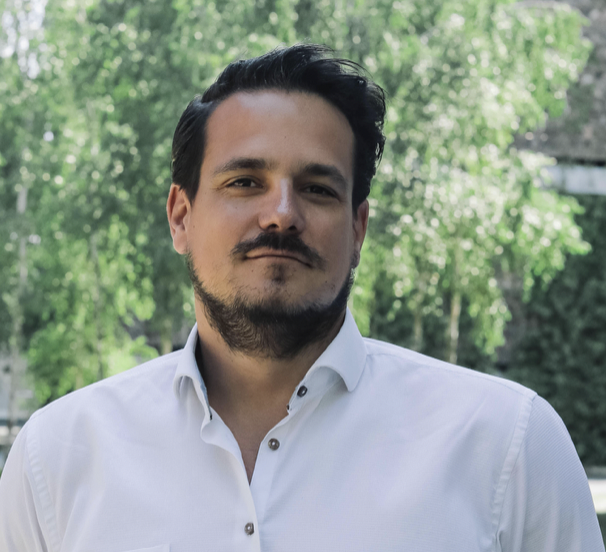Using laser technology developed at the European Organization for Nuclear Research (CERN), inPhocal is disrupting the marking industry by developing new ways to print expiration dates and QR codes on food and beverages and personalize and verify the origin of luxury goods. The same laser technology can also be used to shape automotive parts and slice semiconductor wafers. The Dutch startup, which won the CES 2022 Innovation award, is currently involved in several pilots: one with luxury goods maker LVMH and another with one of the world’s largest beverage manufacturers. It recently sold its first system to a company in the marking industry that will use it to label plastic casings with information about electronics that are inside.
In the food and beverages industry, the most popular solutions are inkjet and laser printers. Each of these technologies has its limitations in either speed, cost of ownership or use of environmentally unfriendly materials, says inPhocal CEO Robert Van Tankeren.
Ink is not sustainable, and the use of ink jet cartridges requires considerable maintenance, says van Tankeren. “We don’t have to convince the industry that lasers are a good idea. They already know tha,t” he says. However, current laser technology can only focus on one point. “Our technology extends the depth of that point from say one millimeter to around five centimeters and because of that we can print more, and we can print faster,” he says. inPhocal’s technology additionally offers an efficient way to also laser print QR codes. “The beverage industry does 2000 scans a minute,” says van Tankeren. “The current technology can’t do QR codes in that time frame. We can.”
There are many advantages to adding QR codes, he says. “Adding QR codes adds insight for manufacturers on the way their products move, giving them traceability. It’s also good for sustainability because if there is a problem, they can pinpoint the exact package, can or bottle that went wrong, significantly reducing the amount of goods that needs to be recalled,” he says,
Luxury good makers can use the technology to guarantee authenticity to reduce counterfeiting and for in-store personalization of products or to mark limited editions.
“In addition to outperforming on speed and costs, without the use of toxic printing inks, we have the capability to print on curved surfaces, which makes it ideal for applications such as cutting metal or plastic components for the automotive industry,” says Van Tankeren.
The technology was originally developed by CERN, which came across the technology by accident when it was looking for a way to make more accurate measurements. The invention was set aside because it was not something the research organization wanted to use for an application. The technology attracted the attention of HighTechXL, a Netherlands-based venture builder that scouts advanced technologies from research institutions and tech companies, assesses them based on their patent position, novelty, manufacturability, and knowledge transfer, then explores ways of to use them to tackle grand societal challenges and begins the venture-building process. HighTechXL, whose shareholders include Dutch chip equipment maker ASML and Dutch healthcare company Philips, licensed the technology.
inPhocal was founded in 2019 when a team of skilled technical people started the HighTechXL deep tech venture building program and developed proprietary technology from the original CERN invention. In 2020 the company, based on the HighTechXL campus, approached Van Tankeren, a physicist by training with more than a dozen years of training in general management and commercial management, to ask him to become CEO and develop a go-to-market strategy.
The Dutch startup eventually plans to enter the lucrative semiconductor market with its laser cutting technology. “We think we can offer an immense value to producers of high-level computer chips, but this is still something in the beginning phase,” says Van Tankeren. “
inPhocal won the coveted CES Innovation Award in January 2022, followed by the Gerard & Anton award in September 2022 from Philips, which is granted to the most innovative companies in the Eindhoven region. The company was additionally named one of the top 10 finalists in the Deloitte Fast 50 award and was named a Deep Tech Innovator by Hello Tomorrow, which operates startup programs, events and innovation consulting. Next month van Tankeren will pitch at the global KPMG tech innovator 2023 in Portugal, after winning the Dutch final last June in Amsterdam.
To access more of The Innovator’s Startup Of The Week stories click here.







